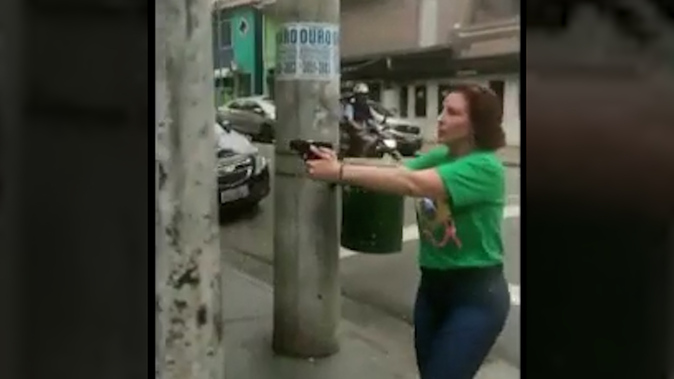Graphic report The five graphs that explain the climate of extreme polarization in the Brazilian elections
The sun was going down and a raging tropical storm wiped everything out in
São Paulo.
Final for a Saturday of tensions, violence and parties in
Brazil, which this Sunday will decide whether to give
Jair Bolsonaro
four more years in power
or deliver a third presidential term to
Luiz Inácio Lula da Silva.
In the hours before the elections that call
156 million Brazilians
to the polls, everything happened: a Bolsonaro deputy threatened Lula supporters with a gun in the heart of São Paulo, the left-wing candidate shouted at the
fake news
before celebrating with his supporters, while the hard-right candidate closed the campaign in
Belo Horizonte,
in motorcade, before launching his last promises.
While the politicians exhausted their last efforts, the pollsters did not rest.
They offered new polls already entering Saturday night and the conclusion is evident: anything can happen.
Lula has a narrow lead, but Bolsonaro keeps his chances.
There are 6% of those surveyed who say that they have not yet decided to vote for him or that they plan to vote blank or nullified.
On an afternoon of oppressive heat, Lula was accompanied in a meeting with the press by José Mujica, former Uruguayan president, who at 87 years old -ten years older than Lula- especially suffered from lack of air in the small cultural center where he the
Workers' Party (PT)
gave its last message.
Victor R. CaivanoAP
"Lula is going to win. This is a choice between democracy and authoritarianism," said the former Uruguayan president, who in the first decade of the current century forged an ideological alliance with Lula in Brazil, the
Kirchners
in
Argentina
and
Evo Morales
in
Bolivia,
among others.
other presidents of the region.
Lula, who governed Brazil between 2003 and 2011, is convinced that on January 1, 2023, he will once again occupy the main office of
the Planalto Palace.
"What civilized people do is admit defeat and call out the winner. I hope he does," he said of Bolsonaro, whom he accused of running a "giant factory of lies."
"You don't campaign in any country in the world with the amount of
fake news
here," Lula complained after his candidate for governor of Sao Paulo and failed presidential candidate four years ago,
Fernando Haddad,
lectured the press about how to deal with
fake news.
“We realize that the Bolsonarist
fake news
machine is in full swing on the eve of the elections,” Haddad said.
Shortly after, in a festive atmosphere, Lula's voters marched down Avenida Paulista, the financial heart of the city.
Batucada and funk, although the enthusiasm grew when "Ta na hora do Jair ja ir embora" was sung.
The theme, which means "it's time for you to go, Jair", was ranked second in the top 50 viral of
Spotify Brazil.
Hours earlier, a Bolsonarist deputy,
Carla Zambelli,
had astonished in a confusing incident.
Engaged in an argument in the street with Lulista sympathizers,
she chased one of them with a gun in his hand
and even fired a shot.
The video of what happened in Jardins, an upper and upper middle class area of São Paulo, circulated at full speed on social networks.
Some Brazilian media highlighted that Zambelli, white, pointed a gun at a black man.
According to electoral legislation, the possession of weapons and ammunition is prohibited for collectors, sports shooters and hunters in the 24 hours before and after the day of the vote.
Zambelli, a federal deputy, offered confusing explanations for her outlaw attitude.
Unaware of the matter, Bolsonaro led a demonstration of motorcyclists in
Belo Horizonte,
the largest city in
Minas Gerais,
a key state for the presidential election.
Squeezing the campaign to the last minute, the president launched 22 promises on social networks under one slogan: with Congress in the hands of the right, this time he will have no obstacles to carry out his program and change Brazil thoroughly.
Conforms to The Trust Project criteria
Know more

